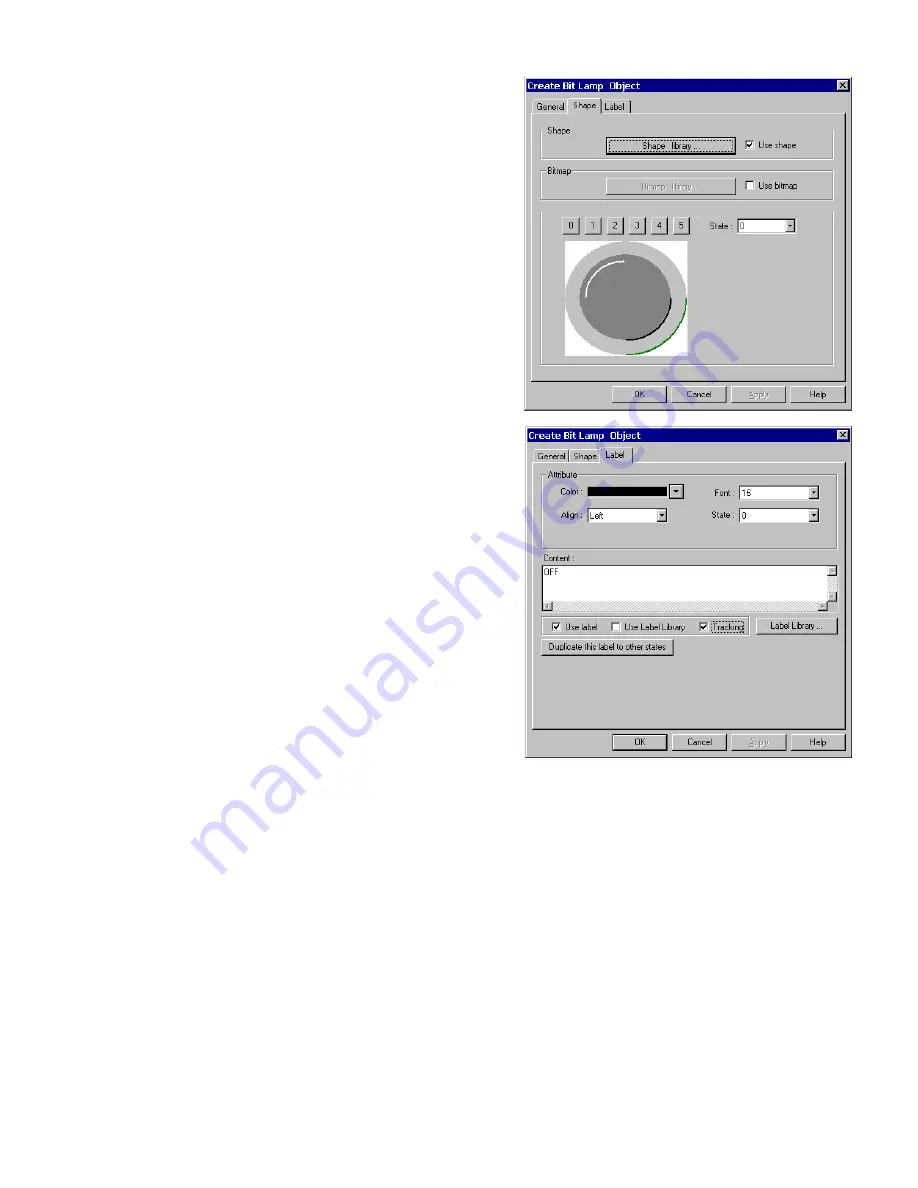
121
Step 3.
Click the
Shape
Tab: Select
Use shape
and/or
Use
bitmap
. Click
Shape library
or
Bitmap library
to bring up a library
for selecting the Shape or Bitmap to display the 0(OFF) and 1(ON)
states.
Note:
If the Shape or Bitmap only has one state, the lamp
seems to disappear when the Bit Lamp changes from that
state.
Note:
When both Shape and Bitmap are selected, the Shape
always over writes the Bitmap graphic.
Step 4
. Go to the
Label
Tab and fill in
Attribute
fields. See
section on Part Placement for more details about entering Labels.
Color
is the color of the text for the indicated State. Select
one of 256 colors or 4 shades of bluescale.
Font
is the size of the text. Text size can be different for each
state.
Align
is only used if multiple lines are in the label.
Note:
Align justifies the text. It does not justify the text
relative to the shape/bitmap. Center does not center the text
in the area of the shape/bitmap.
Use the
State
dropdown to toggle between the State 0 and
State 1 texts.
Content
contains the text to denote State 0 and State 1.
Select
Use label
to enter a label in the
Content
field and
make it active for the part.
Select
Use Label
Library
to choose a predefined label from
the Label Index dropdown and make it active for the part.
Select
Tracking
(if appropriate).
Tracking
: Tracking is used to align all of the labels from the
different states after placement. This means that if the label
in State 0 is moved the labels in all other states are moved
also in the same direction and position.
Note
: This might be desirable for an annunciator but inappropriate for a toggle switch.
Click
Duplicate this label to other states
to copy the Content to all other states of the label. This action cannot be
reversed by the Undo command.
Step 5
. Click
OK
to place the Bit Lamp on the window. Position the Bit Lamp and resize it if necessary. Adjust the label
position as desired. Click once to select the Bit Lamp. Click the BitLamp again to adjust the Label Text. Double-click to edit
the Bit Lamp.
Bit Lamp Design Tips:
1. Use the Bit Lamp to Show/Hide static shapes and backgrounds. For example: Putting a red frame around some
parameters that have become out of range.
2. Assign Help text to State 1 and no text to State 0. Use the Bit Lamp to display that help when it is appropriate by forcing
the Read address ON. (Alarm condition, during setup, on user request, etc.) A Shape or Bitmap is not needed in this
instance.
3. Use
the
Multi. Copy…
command to make a bank of indicators from a single Bit Lamp.
Summary of Contents for MMI-1500
Page 2: ...ii...



































